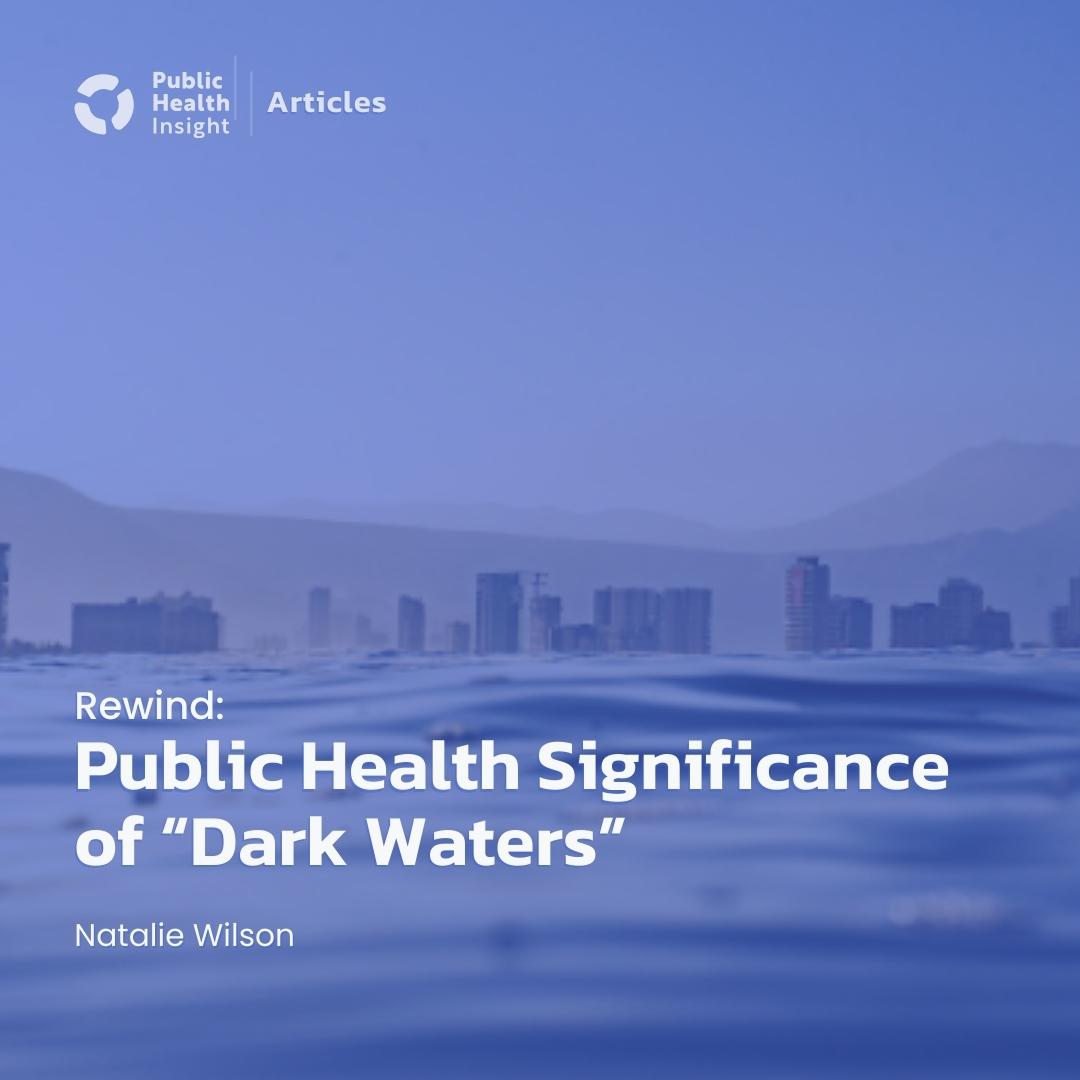
20/11/2023
“There is a man-made chemical. It was invented during the Manhattan Project. It repelled the elements, especially water. So they used it to make the first ever waterproof coating for tanks. It was indestructible. Then some companies thought “Hey, why just the battlefield? Why not bring this chemical into American homes?”
Rob Bilott in the movie Dark Waters
In one of the episodes on the Public Health Insight podcast, the team kicks off their Rewind series by examining the public health relevance of the 2019 film, Dark Waters. Starring Mark Ruffalo and Anne Hathaway, the movie follows the true story of Robert Bilott’s lawsuits against DuPont manufacturing for their widespread pollution of waters in West Virginia and Ohio.
In this blog post, we’ll be breaking down …
Beginning in 1998, chemical company DuPont was faced with numerous lawsuits due to the pollution released by their Teflon production. Teflon is a common plastic material often used in packaging and most notably in the coating of nonstick cookware. Until 2013, Teflon was produced using perfluorooctanoic acid (PFOA). PFOA is known as a “forever chemical” and is especially harmful due to its ability to persist in its environment. This means that when PFOA is present either in the natural environment, bodies of water, or even in the human body, it is very difficult to eliminate.
In the late 1990’s, West Virginia cattle began dying unexpectedly, prompting local farmers to seek legal guidance. Robert Bilott took on a farmer, Wilbur Tennant’s case against DuPont, seeking to demonstrate that the chemicals they were dumping into the local water from their factory were harming agriculture. DuPont commissioned an investigation of the farmer’s property, and the veterinarians selected by the company claimed that the animals were dying due to poor animal husbandry.
This finding did not sit well with the farmer or with Bilott, which prompted further investigation into exactly what DuPont was dumping into the water. Bilott investigated DuPont’s production of PFOA, as there was very little publicly available information on the chemical at the time. His investigations revealed that since 1951, DuPont had been using PFOA in their production, and since then the company had records of knowing the harms it could cause to human and environmental health. In the 1990’s, PFOA waste was being disposed of in a designated landfill, which drained directly towards the property of the farmer whose cattle had been dying. This finding settled the farmer’s case, but Bilott did not stop there. In the years that followed, so did more lawsuits against DuPont by affected individuals exposed to contaminated drinking water. PFOA has been largely phased out of use as the result of these investigations, however, due to its longevity it still persists in contaminated regions.
Over 4,700 “forever chemicals” – highly persistent chemicals that do not occur naturally – have been recognized to date. These chemicals, such as PFOA, have been linked to a plethora of health issues such as kidney cancer, testicular cancer, thyroid disease, high cholesterol, pre-eclampsia and ulcerative colitis. Since they do not break down easily, these chemicals can bio-accumulate within your body or within food chains over time. Typically, higher concentrations of these chemicals are associated with increased risk of negative effects, so populations located near polluted areas are at a higher risk.
For adults who are in conflict with the law or involved in the justice system, there are several community-based programs. These programs can vary from giving individuals tools to help with mental health challenges, challenges with housing, or developmental challenges. Then, there are specific adult residential programs which offer long and short-term options which are uniquely tailored to men and women. Michael discussed halfway houses, which are also known as Community Residential Facilities, which provide a chance for people to make a smooth transition from a correctional facility to a community.
There are a few things that individuals can do to limit their exposure to forever chemicals. Reducing your consumption of food packaged in plastic can be a good start, as well as avoiding non-stick cookware made with PFAS, PFOA, and PTFE. Cosmetics or dental floss can also sometimes contain PTFE, so looking into the ingredients of the products you use can help. At a local level, look into the levels of PFOA in your local water supply, or encourage your local government to look into monitoring these levels. Supporting policies that encourage responsible disposal of manufacturing waste, companies that uphold high levels of environmental consciousness, and even small changes in your daily consumption can help to make an impact.
Conclusion
The case against DuPont as seen in the movie Dark Waters highlights some very important issues facing our modern society around how industrialism and pollution affect our health. This case underscored the problems that can arise from mishandling of chemicals, and hopefully also sets the precedent for how industries need to take accountability for their environmental impact and to avoid similar situations in the future.
For more information:
Written by: Natalie Wilson